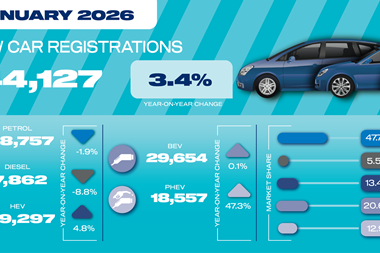A new report from Bloomberg New Energy Finance says that continuing reductions in battery prices will bring the total cost of ownership of electric vehicles (EVs) below that for conventional-fuel vehicles by 2025, even with low oil prices.
The study forecasts that global sales of electric vehicles will hit 41 million by 2040, representing 35% of new light duty vehicle sales.
The research is based on findings which suggest that further big reductions in battery prices lie ahead, and that during the 2020s EVs will become a more economic option than petrol or diesel cars in most countries.
The forecast for sales in 2040 is almost 90 times the equivalent figure for 2015, when EV sales are estimated to have been 462,000, around 60% up on 2014.
The report says that the projected change between now and 2040 will have implications beyond the car market. It estimates that the growth of EVs will mean they represent a quarter of the cars on the road by that date, displacing 13 million barrels per day of crude oil but using 1,900TWh of electricity. This would be equivalent to nearly 8% of global electricity demand in 2015.
At the centre of the study is the work BNEF has done on battery prices. It finds that lithium-ion battery costs have already dropped by 65% since 2010, reaching $350 per kWh last year. The researchers expect EV battery costs to be well below $120 per kWh by 2030, and to fall further after that as new chemistries are introduced.
The report’s central forecast is based on the crude oil price recovering to $50, and then trending back up to $70-a-barrel or higher by 2040. Even if the oil price were to fall to $20 and stay there the report says that this would only delay mass adoption of EVs to the early 2030s.

































No comments yet